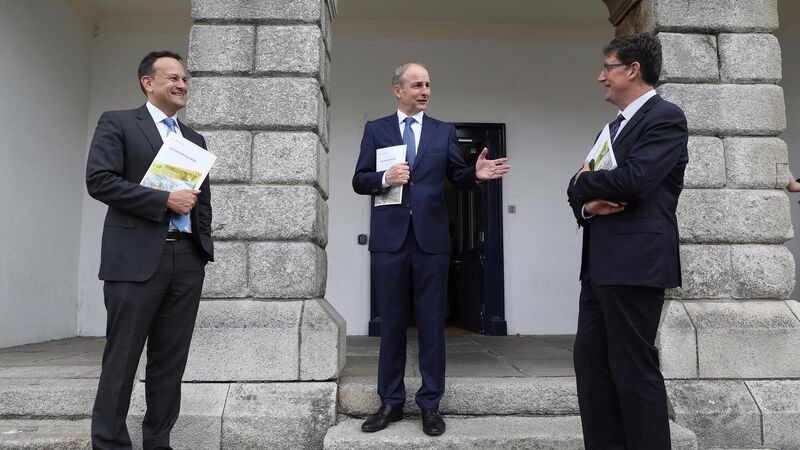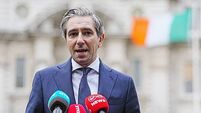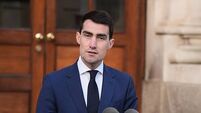Special advisors: Unprecedented level of political hires

Tánaiste Leo Varadkar, Taoiseach Micheál Martin and Minister for Climate Action, Communications Networks and Transport Eamon Ryan. Picture: Julien Behal Photography
The three government leaders have appointed an unprecedented number of special advisers to deal with the media and steer them on policy decisions.
Both Taoiseach Micheál Martin and Tánaiste Leo Varadkar have taken on six advisers to assist them, while Green Party leader Eamon Ryan has employed eight. This does not include the government press secretary, Lisa Dee Collery, and the two deputies, Ian Carey and Nick Miller, who are also political appointments.
















